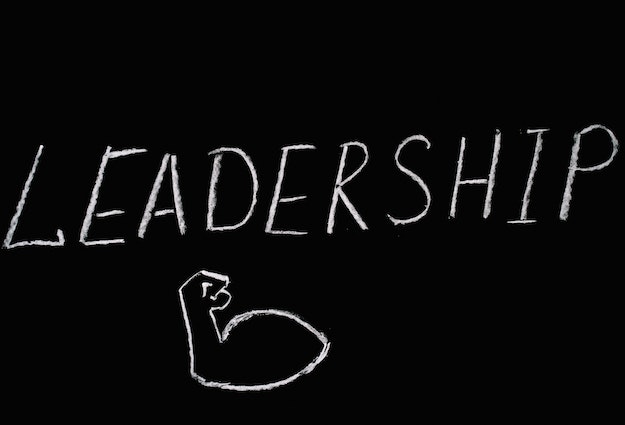Are you looking to build a strong team and leave a positive impact? Whether it’s understanding what leadership is, developing your skills, building the right team or focusing on corporate social responsibility (CSR) training – there’s so much to consider!
Let us help guide you through the necessary steps needed to become an effective leader and make sure that your organization succeeds.
Understanding Leadership
Leadership is the ability to guide and motivate a group of people towards a common goal. It involves setting direction, inspiring others, and making decisions that will benefit the team as a whole. There are many different types of leadership styles, each with its own unique strengths and weaknesses.
Leaders must possess strong communication skills in order to effectively convey their vision and inspire others to follow them. They also need good problem-solving abilities in order to make sound decisions for their teams.
Leadership Styles
Different types of leadership styles include autocratic, democratic, laissez-faire, transformational, and servant-leadership.
Autocratic leadership: This type of leadership is characterized by a leader who confidently makes choices without the help or advice of others. A prime example of this style in business is Steve Jobs at Apple, whose powerful and stringent management approach was famously known throughout the company’s history.
Democratic leadership: This form of leadership is acclaimed for its capacity to involve and enable the input of team members. Jack Welch at General Electric was a primary exemplar of this kind of leader, renowned for his eagerness to listen and incorporate the ideas contributed by his staff.
Laissez-faire leadership: Leaders who demonstrate this style of leadership empower their team members to make decisions and complete tasks without constant supervision. Mark Zuckerberg is a classic example, as his hands-off management approach allows his employees the freedom and autonomy they need to reach success on projects.
Transformational leadership: This leadership style involves a person who sparks passion and enthusiasm in their followers to accomplish a shared purpose. Notable models of this type of leader include Howard Schultz, the iconic former CEO of Starbucks, who was known for his remarkable ability to cultivate an atmosphere full of unity within his company.
Servant leadership: This leadership style is defined by a leader who puts their followers first and encourages them to rise to the occasion. An outstanding example of this type of leader is Larry Page at Google, famous for fostering an encouraging atmosphere that enables his team members to reach their highest potentials.
Once you understand the fundamentals of leadership, such as different types and qualities, it is time to focus on developing your own skills in order to become an effective leader. This includes mastering self-awareness, communication, problem solving and more.
Key Takeaway: Leading teams involves setting direction, inspiring others, and making decisions that will benefit the team as a whole. Different types of leadership include autocratic, democratic, laissez-faire, transformational, and servant-leadership.
Developing Your Essential Leadership Skills
Self-Awareness and Reflection
Self-awareness is an important part of being a successful leader. It involves understanding your strengths, weaknesses, values, beliefs, and motivations. Taking the time to reflect on these aspects can help you better understand yourself and how you interact with others.
Reflecting on past experiences can also provide valuable insight into how to approach future challenges. A leadership coach can be very helpful with this since they can give you outsider feedback.
Communication and Interpersonal Skills
The ability to communicate effectively is key when it comes to leading a team or organization. Good communication and listening skills involve actively paying attention to what others have to say as well as being able to clearly articulate your thoughts in order for them to be understood by everyone involved.
Additionally, having strong interpersonal skills such as empathy and respect are essential for creating positive relationships with colleagues which will lead to more productive conversations, direct reports, and outcomes overall.
Strategic Thinking
Strategic thinking requires looking at the big picture while problem solving requires focusing on the details of a situation in order to come up with solutions that work best for all parties involved. Leaders must be able to think critically about situations they encounter in order to make decisions that benefit their teams or organizations long term, while also addressing any immediate issues that may arise along the way.
Developing your leadership skills is essential for any successful team. By understanding the essential skills like self-awareness, communication, and problem solving, you will be well equipped to build a strong team that works together towards success.
Building Your Team
Creating a Positive Work Environment
A positive work environment is essential for team building. It encourages collaboration, innovation, and productivity among team members.
Leaders should strive to create an atmosphere of respect and trust by fostering open communication and providing support when needed. Additionally, leaders should be proactive in addressing any issues that arise quickly and fairly.
Delegating Tasks and Assigning Roles
Effective delegation is key to successful team building. Leaders must assign tasks based on individual strengths while ensuring everyone has the resources they need to complete their tasks successfully.
Furthermore, assigning roles or carrying out organizational change helps ensure each member understands their responsibilities within the group dynamic as well as how their role contributes to the overall success of the project or task at hand.
Teamwork is Essential for Success
Leaders should encourage collaboration between team members in order to foster creative solutions to problems and allow individuals to learn from one another’s unique perspectives. Additionally, leaders should promote innovation by encouraging out-of-the-box thinking which can lead to breakthrough ideas or strategies that could benefit both short-term goals as well as long-term objectives for the organization or project at hand.
Leadership is the key to creating a successful team, and incorporating CSR training into your organization’s culture is an essential part of building a strong foundation. Let’s explore how to incorporate CSR training into your team development program.
Corporate Social Responsibility (CSR) Training
Corporate Social Responsibility (CSR) training is an important tool for organizations looking to build their teams while leaving a positive impact around the world. It can help leaders develop their skills, increase employee engagement and improve public perception of the organization.
The Benefits of CSR Training for Leaders
Corporate social responsibility training helps leaders become more self-aware and reflective in their decision making processes through workshops, charity work, and leadership coaching.
It also improves communication and interpersonal skills, as well as strategic thinking and problem solving abilities. These benefits allow leaders to better understand how their decisions affect not only their own team but also those outside the organization.
Strategies for Implementing CSR Training Programs
Organizations should consider offering both in-person or virtual workshops that focus on specific topics related to corporate social responsibility such as sustainability, diversity & inclusion, ethical practices, etc.
They should also provide resources such as videos or articles that employees can access at any time to further educate themselves on these topics. Additionally, it’s important to create an environment where employees feel comfortable discussing these issues openly with each other without fear of judgement or retribution from management.
Key Takeaway: CSR training helps leaders become more self-aware and improve communication and problem solving skills through the help of a program facilitator. Strategies for implementation include: in-person/virtual workshops, resources such as videos and articles, and an open environment to discuss issues without fear of judgement.
FAQs in Relation to Leadership Essentials
What are the 5 elements of leadership?
- Vision: Leaders must have a clear vision of what they want to achieve and be able to communicate it effectively to their team.
- Communication: Leaders need strong communication skills in order to motivate, inspire, and guide their teams towards success.
- Decision-Making: Leaders must be able to make difficult decisions quickly and confidently while considering the best interests of the team as a whole.
- Accountability: Leaders should take responsibility for both successes and failures within their team, leading by example with integrity and honesty at all times.
- Empathy: A successful leader is one who can understand the needs of their team members on an individual level, showing empathy when necessary in order to foster collaboration and trust amongst colleagues.
What are the 7 core skills of a leader?
- Communication: Leaders must be able to effectively communicate their vision and goals, both verbally and in writing.
- Decision-Making: Leaders must have the ability to make sound decisions quickly, based on available information and resources.
- Emotional Intelligence: Leaders need to be aware of their own emotions as well as those of others in order to create a positive work environment and foster collaboration among team members.
- Adaptability: The ability to adjust strategies or plans when faced with unexpected changes is essential for successful leadership roles.
- Motivation: A leader needs to inspire their team by setting an example through hard work, dedication, and enthusiasm for the task at hand while also providing recognition for accomplishments achieved along the way.
- Problem Solving: Effective leaders are able to identify problems before they arise, develop solutions that address them efficiently, and implement those solutions successfully within a given timeline or budget constraints if necessary.
- Visionary Thinking: A leader should possess the foresight needed to anticipate potential issues down the road, plan ahead accordingly, and lead teams towards success even under difficult circumstances.
What are 5 simple rules which are essential for leadership?
- Lead by example: Demonstrate the values and behaviors you expect from your team.
- Communicate clearly: Be transparent, open to feedback, and ensure everyone is on the same page with goals and expectations.
- Encourage collaboration: Foster an environment of cooperation and respect between team members to achieve success together.
- Show appreciation: Acknowledge individual contributions, celebrate successes, and recognize effective work in order to motivate your team members.
- Embrace change: Adapt quickly to new situations or challenges that arise in order to stay ahead of the competition or remain relevant in a changing market landscape.
What are the 4 P’s of leadership?
- Purpose: Leaders must have a clear purpose and direction for their team to follow. They should be able to articulate the mission, vision, and values of the organization in order to motivate and inspire their teams.
- People: Effective leaders understand that people are at the heart of any successful organization. They foster an environment where everyone is respected, valued, and appreciated while also providing guidance and support when needed.
- Processes: Leaders need to ensure that processes are in place which allow for efficient operations within the organization as well as effective communication between departments or teams.
- Performance: Leaders should strive for excellence by setting goals and objectives which challenge employees while still being achievable with proper planning and execution from all involved parties.
Conclusion
Leadership is an essential skill for any organization looking to succeed. By understanding the basics of leadership, developing your own skills and building a strong team, you can create a positive impact in your workplace and beyond.
Corporate Social Responsibility training provides the perfect opportunity to further hone these leadership essentials and ensure that your team is equipped with the necessary tools to make meaningful change. With the right guidance, you can become an effective leader who makes a lasting difference in their community!
Are you looking to develop your team’s leadership skills while making a positive impact on the world? Odyssey Teams offers corporate social responsibility training simulation workshops that are designed to equip organizations with the essential tools needed for successful leadership.
Our in-person, virtual and hybrid sessions will help create an environment of trust, communication and collaboration within teams – leading to increased productivity and greater success. Get in contact with us today!









Leave A Comment
You must be logged in to post a comment.